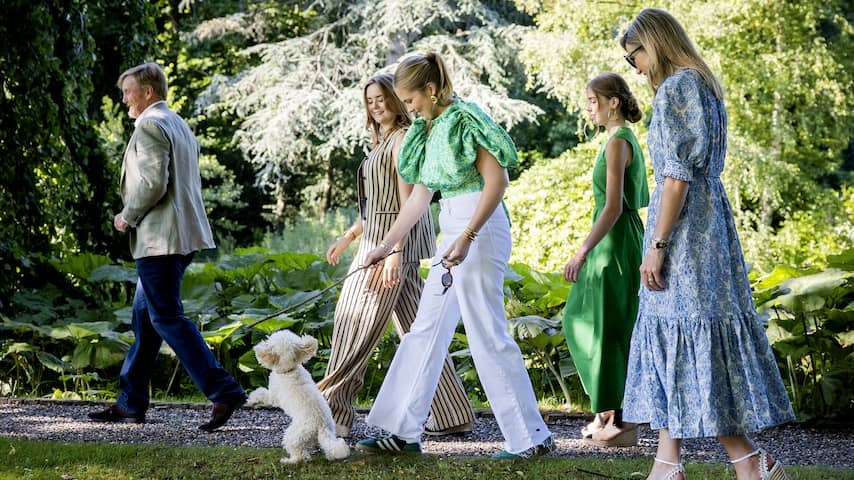
The royal family seems to be a close-knit family, even as the princesses increasingly lead their own lives. During the annual summer photo session, Máxima said they “really keep in touch” with each other. How do you maintain the bond with the parental home as an adult?
“With children leaving home, it becomes more difficult each time to find those moments to share and be aware of each other’s lives,” Máxima said on Monday.
According to the Queen, the family “really keeps in touch” by talking to each other about how things are going. “It is very important to continue doing that. And no family is perfect. So this one isn’t either.” If something goes wrong, they try to solve it. “And still keep laughing.”
A close-knit family means that you are genuinely interested in other family members, says Marina van der Wal. “And that you teach your children that interest.” You do things together and accept each other. “The royal family is very actively involved in that,” says the family and relationship therapist.
When you leave home, you see your parents, brothers or sisters less often. A relationship with a solid foundation can often withstand that, says Professor of Education and Development Peter Bos. “Distance doesn’t have to be a problem, because you will find each other again.”
That is also what family and system therapist Marijke van de Laar says. Did you always go to your mother when you were having trouble with something? Then you will also do that when you have left home. In a close-knit family, that safe environment has already been created during upbringing.
Your upbringing usually forms the basis of how you position and behave yourself in relationships, Bos explains. “It is easier to have confidence in others if you have received that as a child.”
Keep each other informed
Keeping each other informed is important as you increasingly lead your own life, all three experts say. However, it is important to tell from yourself what occupies you, advises Van der Wal. “One of the biggest pitfalls is that people wait for the other person to ask how things are going. You then get the idea that the other person never asks about it.”
Don’t be afraid to talk about things that really matter to you, says Bos. “That openness creates a feeling of connection.” Don’t just tell what you are dealing with, but also share what you are enthusiastic about. “Otherwise, family members think that you only share worries and misery when they see your name light up on their phone,” says Van der Wal. “Also call when there are fun things.”
Arrange fixed moments and take initiative
It helps to arrange fixed moments when you see each other. For example, eat together weekly or monthly. Van der Wal: “Then you have to actively cancel it and you can plan around those holidays.”
Not everyone needs the same amount of contact. As a result, you may feel that you are often the one who has to arrange something. “But that’s not fair,” says the family and relationship therapist. Maybe you already organized something before the other person could take the initiative. “You have people who organize and people who go along. You can’t blame someone for that so quickly.”
It is therefore good to take the initiative yourself if you want to see your family. Even if you are often the one who organizes the appointments. Van der Wal: “You want to strengthen that bond with your family. Of course, you also need the other person for that. But if you desire certain experiences and needs, it is your turn to arrange it. And you have a chance that they will think it is great.”
‘Let your parents step into your new life’
Make sure there is equality, adds Van de Laar. “Parents remain your parents and you remain their child, but you don’t always have to go back to your parents: your old life. It is important that your parents also increasingly step into your new life and visit you.”
It is nice if you have a good relationship with the family you come from. “It is a kind of emotional safety net that you are not alone for the rest of your life,” says Van de Laar.
But not everyone has a close relationship with their parents. “We don’t have to pin ourselves on biological relationships,” says Bos. According to the professor, you can also look for that close family yourself, for example in the form of friends. “Doesn’t it work? Then look for your own ‘family’. People are flexible enough for that.”